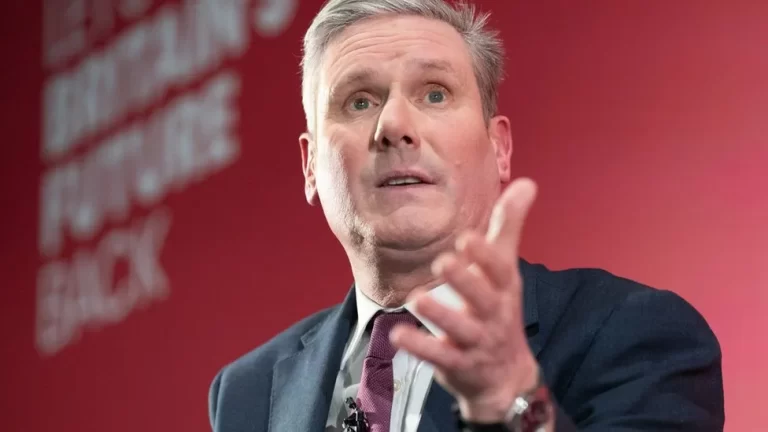Labour is ditching its policy of spending £28bn a year on its green investment plan in a major U-turn.
An official announcement will be made on Thursday. Sources insist the party's Green Prosperity Plan, which includes creating a publicly-owned green power company, is not being dropped altogether.
But Labour will no longer commit to investing £28bn a year in green energy projects if it wins the next election. Labour's position on the policy in recent weeks has been increasingly muddled, with some senior figures repeatedly refusing to use the £28bn figure when pressed in interviews, while others, including party leader Sir Keir Starmer, continued to do so.
It is expected Labour will argue that they have to focus on being seen as responsible stewards of the economy, rather than committing to a spending pledge that opponents regard as reckless. The plan to spend £28bn a year on green energy projects, like offshore wind farms and developing electric vehicles, was first announced by shadow chancellor Rachel Reeves in September 2021.
That pledge was watered down last June, with the £28bn target adjusted so that a Labour government would meet it about halfway through its first term rather than in its first year.
At the time Ms Reeves said the party needed to be “responsible” with the public finances, given the poor economic backdrop and rising cost of borrowing.
Since then there have been growing questions about whether the policy could be scaled back further. In an interview last month, Sir Keir described the £28bn figure as “a confident ambition”, which was subject to the party's fiscal rules.
These include that debt has to be falling as a share of the size of the economy in five years. However, unlike some of his shadow ministers, he has continued to use the figure as recently as Tuesday. The prime minister has repeatedly attacked Sir Keir over the policy, suggesting it will lead to higher taxes.
Privately Labour figures acknowledge a long-standing “brand weakness”, as one source put it, when it comes to economic credibility.
So the decision has been taken to focus on attempting to reassure voters they can be trusted with the economy, rather than keeping the £28bn promise. The move was criticised by left-wing campaign group Momentum and Unite, Labour's biggest union backer.
“This latest Starmer U-turn represents yet another capitulation to right-wing interests,” a spokesperson said.
“Sadly, there is a huge gap emerging between the scale of the economic and environmental crises facing us, and the solutions being offered by a Labour leadership afraid of its own shadow.”
Unite leader Sharon Graham said: “The Labour movement has to stand up to the Conservatives' false accusations of fiscal irresponsibility.
“There is a catastrophic crisis of investment in Britain's economic infrastructure.” Barry Gardiner – Labour MP and a former shadow environment secretary – told the BBC's Today programme: “It's economically illiterate, it's environmentally irresponsible and it's politically jejune.”
He said he understood the desire to “minimise the attacks from the opposition” but warn his party against becoming “so bland that you stand for nothing”.
Carla Denyer, co-leader of the Green Party, said: “This is a massive backward step – for the climate, for the economy and for good quality jobs.
“Both the security of our planet for future generations and the UK's future prosperity is dependent on greening our economy and that requires large scale investment.” Chief Secretary to the Treasury Laura Trott said: “This is a serious moment which confirms Labour have no plan for the UK, creating uncertainty for business and our economy.
“On the day that Labour are finalising their manifesto, Keir Starmer is torpedoing what he has claimed to be his central economic policy purely for short-term campaigning reasons.” Sir Keir had set a deadline of Thursday to finalise his party's draft general election manifesto.
It comes on the day the Conservatives claimed, via Treasury analysis, that part of the plan, to insulate homes, would cost double what Labour had claimed it would. Labour has rejected the analysis as “bogus”.
— CutC by bbc.com


